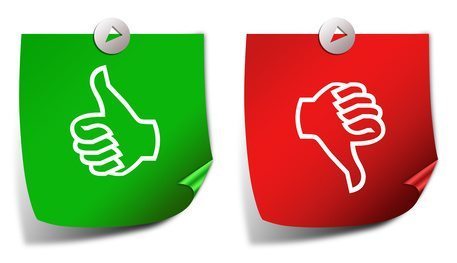Here Is Why Your Credit Score Is One of the Most Important Business Tools You Have
Business owners, here is a pop quiz: What are your top 5 assets? In no particular order, you might have said:
- Your operating capital
- Your employees
- Your hardware, supplies, and property
- Your loyal customers
- Your reputation
While all of these are important assets for obvious reasons, if you did not include your credit score, you are likely under-utilizing one of the most useful and important assets you possess.
Your good credit makes doing business possible if you are a small business entrepreneur. It is hard to imagine how one would even get a profitable operation up and running without sufficient operating capital. Even people who have a lot of money tend to use other people’s money to start up their business ventures.
It is half true what they say: It takes money to make money. The other half of the truth is that without money, it takes borrowing power. And that takes good credit. Here are some other truths about how your credit effects your business you might find useful:
The Other Good Credit
Entrepreneur.com has an excellent article on the subject of credit as it relates to business. I recommend a full read. What follows are a few cliff notes from that piece:
For many new entrepreneurs starting out, the only credit of which they are aware is their own personal credit. But the largest source of lending in the world is when one business lends money to another business. That is called trade credit, or business credit. It is a very different animal from your personal credit.
When starting a business, companies often use their personal credit to get the venture off the ground. Sometimes, this is a necessary evil. But in business terms, it is an evil that you should change as soon as possible.
Know the Score
At the end of the day, there is only one way to know whether or not you have good credit. You have to know your credit score, and what that score means. The same is true for trade credit. They are similar in principle, but different in practice.
Paying your bills on time is one one factor that determines your score. It is possible to never be late on a payment, and still have your score be less than perfect. One of those factors is the number of credit inquires you have. An inquiry is generated every time you apply for credit. It does not matter whether or not you actually get the credit. It still shows up on your report. Even if you get the credit, the inquiry counts against you. The more inquiries you have, the worse your credit becomes.
Also effecting your credit is the amount of credit you have on bank and credit card lines, and the length of time you have had your credit profile. Having too much credit can actually be a drag on your credit score. It is a little bit of a black box. There is some unknown formula that gets you into the Goldilocks zone where everything is just right. But since you will never know that perfect balance, you have to keep up with your score.
If It’s Broke, Fix It
Another reason you should know your score is because mistakes happen. One of the major reporting agencies might get something wrong. It happens all the time. When they do, it becomes a fact on your credit record. That is especially damaging for your trade credit. You may have had a dispute with a creditor that you thought was resolved. Maybe it was. But if that resolution was not reported to the credit reporting agencies, that lives as a black mark against you.
It is relatively easy to check your score and get a detailed report. It is rather more challenging to get the errors corrected. Firms like Lexington Law devote 100% of their practice to removing negative mentions on your credit report. When you discover your credit history is broken–whether in error or by natural consequence–you have to take measures to fix it.
Why Borrowing Power Matters
For any sized start-up to have a chance at success, you need a heck of a business plan, and a truck load of money. You also need to be prepared to lose every penny of that money. That is just one of the many reasons it is better to use someone else’s money whenever possible. To gain this borrowing power, you need your business to have a good credit score.
Unlike a personal credit score, a business credit score ranges from 0 – 100, with 75 and above considered excellent. To get there, you need to find businesses who will front you trade credit that will apply to your business. Once established, you have to make sure those creditors are also credit reporters. Reporting credit matters is strictly voluntary. If they don’t report your good credit, your business will not have it.
When you do gain that borrowing power, you will not only be able to get your business off the ground, you will be able to expand aggressively. You will be able to add employees sooner. And you will have enough capital to move on to R&D the next project, even while the first one is still finding its legs. This kind of advantage is the difference between first-mover, and also-ran.
If your business loses the good credit you have worked so hard to build, you will find the doors of opportunity slamming in your face. To open those doors and keep them open, you need to focus on your trade credit: the secret weapon of the fast-moving startup.






